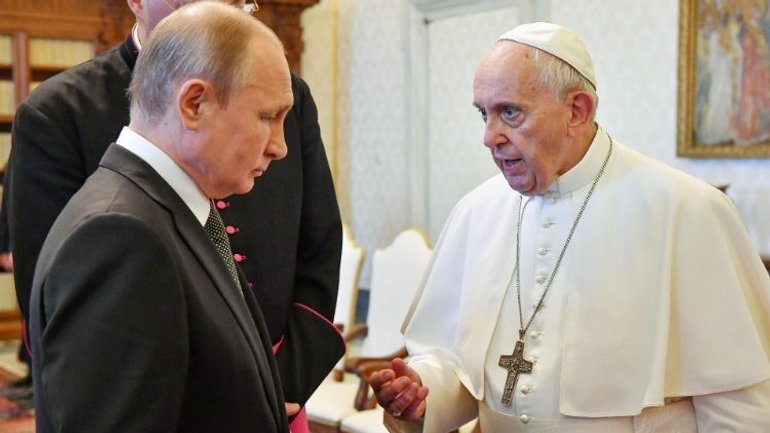

Recently representatives of Canada’s First Nations called upon Pope Francis to revoke the Papal bulls of 1455 and 1493. These decrees effectively denied the humanity of the inhabitants of the Americas and granted spiritual authority to the colonial enterprise. The bulls were part of the Vatican-Papal ethos of the 15th century, meant to bring Christianity/civilization/order to the world and avoid conflict among the European powers. The Vatican’s place beside the powerful of the world, and its ostensible role as arbiter among them, was well established by this time. “Peace” through Vatican diplomacy became a central tenet of how the Church functioned in the world. Clearly, in the 15th century (and for centuries to come) little consideration was given to the less powerful.
The breath of fresh air ushered in by Pope Francis is due, to an extent, to his enunciation of the the Church’s need to attend to the marginalized, not through charity, but through solidarity. But can diplomacy and solidarity walk hand in hand?
The russian invasion of Ukraine reveals that the Vatican and Pope Francis are trying to straddle a fence that may no longer hold their weight. Pope Francis’s words of solidarity with the suffering of the people of Ukraine have been appreciated in Ukraine and around the world; his diplomatic avoidance of “naming” the aggressor has raised eyebrows. At least for 46 days of the russian invasion the fence held. Then, on the 47th day, came news of the Vatican plan for the 13th station of the Way of the Cross to be carried by both Ukrainian and russian women on Good Friday during the annual event at the Coliseum. Although the russian initiated war has had devastating effects on many russians, the decision to have representatives of both countries carrying the Cross creates an equivalence of pain and injustice suffered by the two peoples. The response of His Beatitude Svyatoslav, primate of the Ukrainian Greco-Catholic Church conveys his consternation: “I think this is an ill-timed, ambiguous idea, and it does not take into account the military aggression perpetrated by russia against Ukraine. For Greco-Catholics in Ukraine the text and action of the 13th station of this Way of the Cross are incomprehensible, and even insulting, especially in the context of the expected second, even more vicious attack of the russian forces on our cities and villages.” Even the Papal Nuncio to Ukraine, Archbishop Visvaldas Kulbokas in a media interview declared that he would not organize such a prayer at this time, because peace must come first. “Peace will come when aggression will be stopped. When Ukrainians will once again be able to save their lives and their freedom. And of course, we know that peace comes when the aggressor admits his fault and seeks forgiveness.”
It is clear that Pope Francis and Vatican officials believe that, in order to be able to potentially play a diplomatic role in this conflict, they must balance words of support and sympathy for Ukraine with careful language and gestures toward the invader. However, perhaps the flow of events in Ukraine raises a question for the entire Church: can you stand with the subjugated and still maintain a diplomatic role in the world of the rich and powerful?
Can you be in solidarity with the colonized without explicitly condemning the colonizer and your own role in affirming their power? Can you be a voice of ‘objectivity’ when guilt is clear? If the Church is to be in solidarity with those on the margins, does it not need to acknowledge those who have created the margins? Of course, Jesus ate with sinners, consorted with the wealthy (Zaccheus). That is not diplomacy; that is recognizing that we are all implicated in sin. Diplomacy and politics are about the exercise of power and “necessary compromises” with the powerful. Has the Church not yet learned the cost of those compromises?
In the 15th century the Church compromised with the powerful and denied the humanity of the aboriginal peoples of the Americas. In 1863 an official document of the Imperial russian state declared: “the Ukrainian language never existed, does not exist, and shall never exist.” Prior to the 2022 invasion President Putin openly denied Ukraine’s right to exist and laid claim to it as “historically Russian land”.
In the weeks before the russian invasion Putin used a russian phrase referring to a rape, but applied it to Ukraine: “Like it or not, my beauty, you have to put up with it.” It’s time for the Vatican to realize that Christ calls us to solidarity with the victim of rape, not a deal with the rapist.